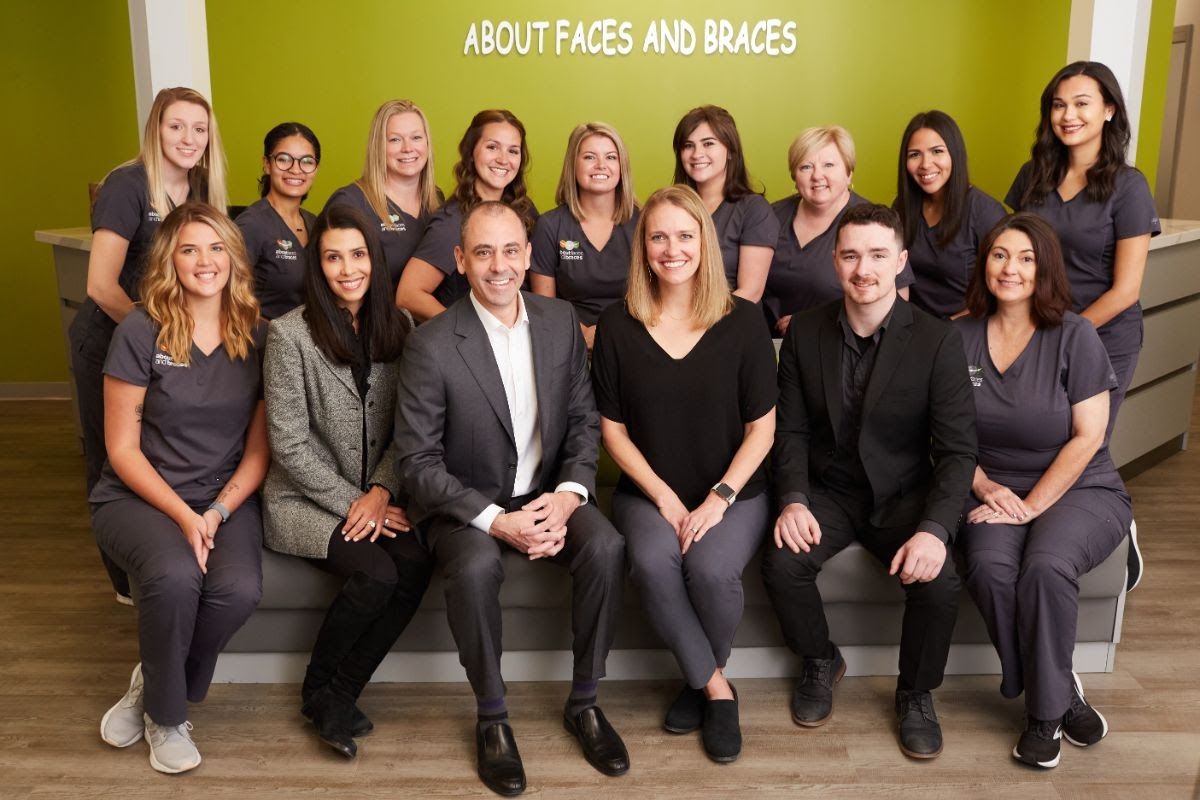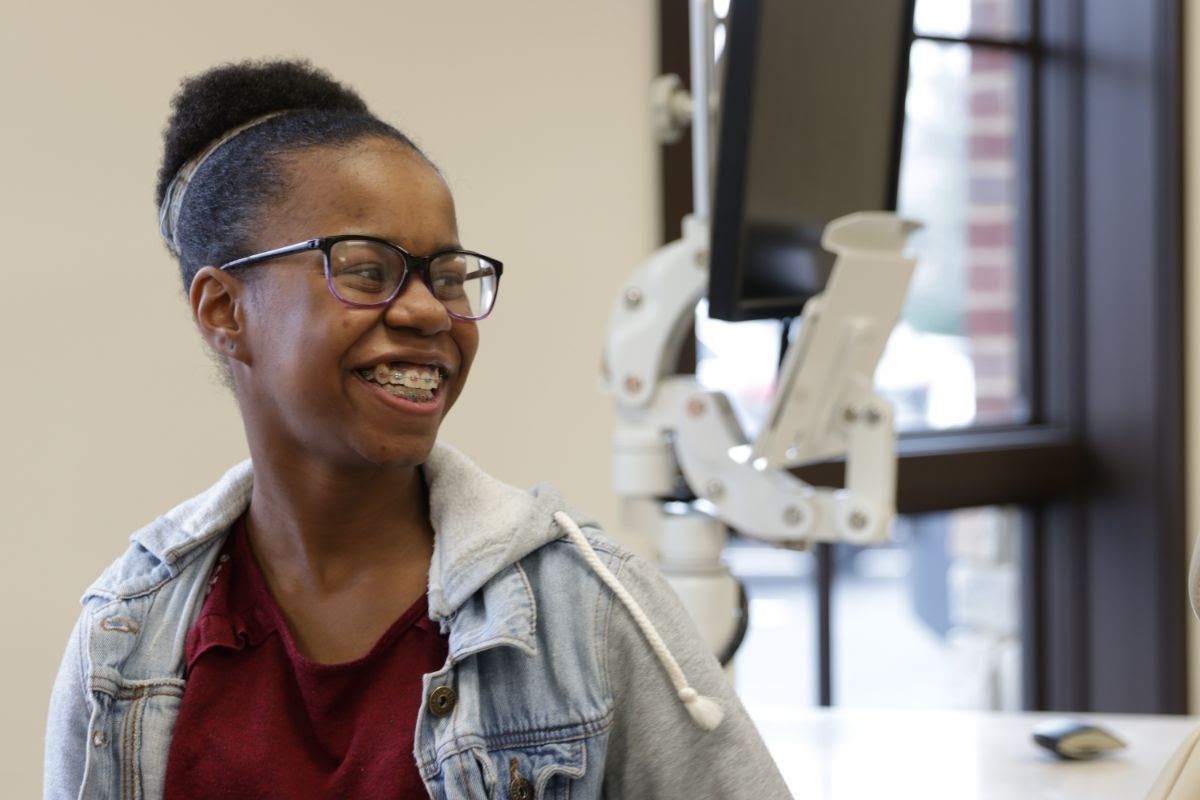Here at About Faces and Braces, we’ve been creating beautiful smiles for patients of all ages throughout Springfield, Clarksville, Nashville, and the surrounding areas. Our team gives out a lot of helpful advice to our patients, but one of the most important pieces of wisdom we have to offer is simple: get a good dental hygiene routine going and stick to it! That includes brushing regularly, flossing effectively, and avoiding bad habits that can damage your teeth.
If you don’t properly care for your teeth and gums during orthodontic treatment, it can slow your progress towards a straighter smile, increase treatment times, and may even negatively affect the final results. Those in braces are particularly susceptible to cavities during treatment, so a consistent brushing and flossing routine really is essential. But this advice doesn’t only apply to our braces patients! It’s a good idea for everyoneto reassess their oral hygiene every now and then. You may take care of your oral health and see a dentist regularly, but what about bad habits that might affect your smile?
Let’s take a closer look at some bad habits that can damage your teeth and how breaking them can give your smile a boost, whether you wear braces or not! Keep reading below to learn more.
Helpful hints to promote good oral hygiene
Your dental hygiene routine should go deeper than a basic brush a few times each day! The state of your toothbrush is a perfect example. Many people have the idea that firmer bristles are better at cleaning the teeth, but this isn’t true. Toothbrushes with firm bristles can actually irritate the gums and may even lead to sensitive teeth. Since our gums tend to recede as we age, exposing the roots of the teeth and increasing sensitivity, this is especially true for older adults. For extra comfort and better results, stick with a soft-bristled toothbrush instead, using gentle, even strokes to clean your teeth and gums.
We recommend that you brush with fluoridated toothpaste at least twice a day for two minutes each time. You should also aim to floss every night before you go to bed. This helps to remove any stubborn food debris and plaque, which will reduce your chances of developing tooth decay. Be sure to replace your toothbrush every 3-4 months or sooner if you have a cold or any other illness. Antimicrobial and fluoride mouthwashes can also improve your oral health by eliminating the types of bacteria that cause bad breath and gum disease.

Crunching ice and chewing on other objects
Crunching on the leftover ice in your cup may seem like a harmless habit, but don’t be fooled. The freezing temps and tough texture of the ice are enough to fracture your teeth! Chewing on ice can also cause microscopic cracks in the surface of the enamel, which can lead to several other dental issues over time. Ice isn’t the only bad guy here, though. Popcorn kernels and fruit pits can also put extra stress on the teeth and occasionally lead to fractures, so always be conscious to not bite down on anything too hard.
Many of our About Faces and Braces patients deal with boredom or the need for distraction by chewing on items like pencils, pen caps, or their fingernails. This is often done subconsciously so you may not even be aware that you’re doing it. Over time, however, this kind of habit can chip away at your tooth enamel and irritate the soft tissue inside the teeth. If this is a problem for you, try giving your mouth something else to do, like chewing sugarless gum or snacking on something with a satisfying crunch, like carrots, celery, or apple slices. As a bonus, these are also excellent for your teeth, oral health, and your whole body, too!
Grinding your teeth
Tooth grinding, or bruxism, is the action of involuntary grinding your teeth outside of normal chewing, swallowing, or speaking movements. There are several possible causes for this, which can include:
- stress and anxiety
- medications
- certain medical conditions
- genetics
- misalignment between the teeth and jaws
- an abnormal bite
- missing or crooked teeth
Bruxism can cause quite a few problems, from interrupted sleep to chronic headaches and many issues in between. It can also wear down the enamel of your teeth when left untreated, eventually exposing the much softer dentin inside. This may result in tooth sensitivity, with symptoms ranging from mild to intense.
There are several options for dealing with tooth grinding. Many of these solutions will help prevent any further damage and also treat any damage that’s already present. This generally involves treating obvious underlying causes, like reducing stress, treating anxiety, and addressing any dental or orthodontic issues. Proactive treatment may be recommended as well, such as wearing a mouthguard overnight.
Sometimes it helps to simply be aware that you’re grinding your teeth! If you feel yourself clenching or grinding your teeth, you can try positioning the tip of your tongue between your teeth to train the jaw muscles to relax. Holding a warm washcloth against your cheek can often produce the same effect and is a calming way to end your day.
Using your teeth as a tool
As orthodontic specialists, you’d be surprised at what we’ve seen teeth used for over the years! Tearing open bags, ripping tags off clothing, uncapping bottles—pretty much anything you could think of, we’ve probably seen or at least heard about. Many people do this without even thinking about it, but using your teeth as tools can be really rough on them! It only takes one wrong move for a tooth to be traumatized, chipped, or even fractured.
With that in mind, try to be mindful when you’re about to use your teeth for something that could be harmful. Keep simple tools like scissors, nail clippers, and pliers in convenient places around the house so you aren’t tempted to do the dirty work with your mouth! Remember, reducing the amount of unnecessary stress on your teeth will help keep them strong for years to come.

Beat bad habits and improve oral health with About Faces and Braces
As experienced orthodontists, Dr. Shawn and Dr. Candice are trained to diagnose and treat a multitude of orthodontic issues. Identifying any bad habits that can damage your teeth is an important part of that process, too! That being said, you don’t have to be an orthodontic patient to benefit from breaking a bad habit if it’s hurting your smile.
If you’re in the Springfield, Clarksville, or Nashville area and need some help breaking free from a harmful oral habit, our expert team is here to help! Contact us today to schedule your initial consultation with our doctors and take the first step towards stronger teeth, a healthier smile, and lasting oral health.

